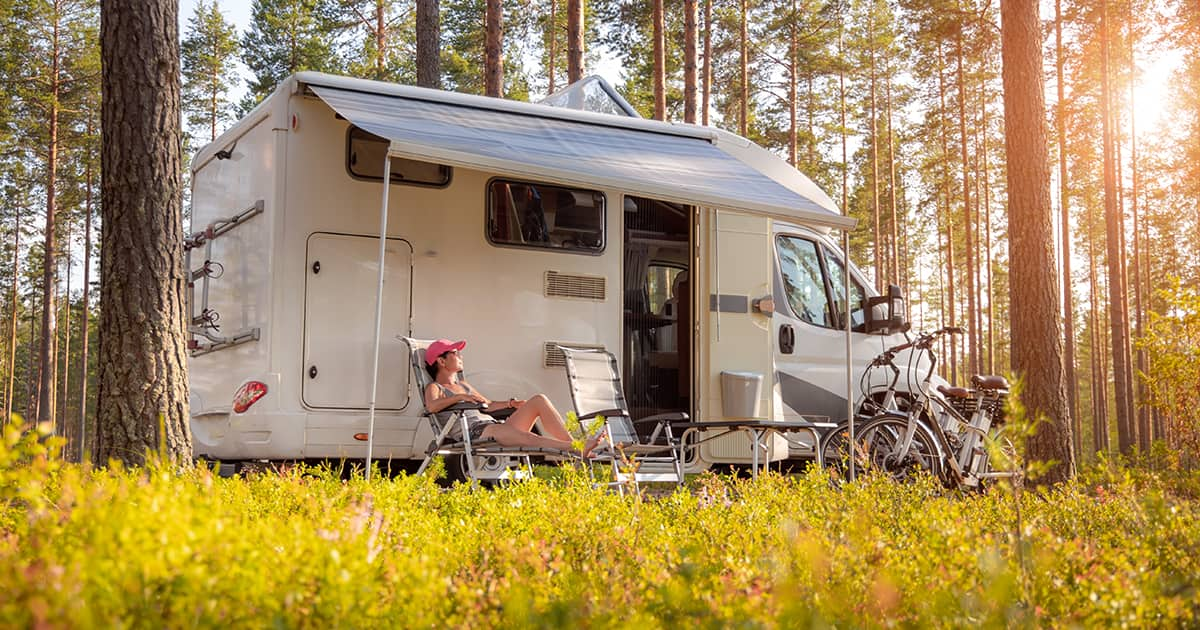5 Things You Didn't Know About RV Insurance

Whether you're a seasoned RV traveller or a newbie to the recreational vehicle lifestyle, one thing remains constant: Insurance is key to protecting your investment and ensuring peace of mind during your journeys.
While many RV enthusiasts are familiar with the basics of insurance coverage, there are some lesser-known aspects that could make a big difference when it comes to safeguarding your home on wheels.
Here are 5 things you may not know about RV insurance:
1. Full-time RV living requires specialized coverage
Dreaming of ditching the traditional sticks-and-bricks lifestyle in favor of full-time RV living? It's an increasingly popular choice for those seeking adventure and flexibility, but it also comes with its own unique set of insurance considerations.
Traditional RV insurance policies are typically designed for recreational use, meaning they may not provide adequate coverage for full-time living.
That's where full-time RV insurance comes into play. This specialized coverage is tailored to the needs of those who call their RV home year-round, offering protection for personal belongings, liability, and more. If you're planning to embrace the full-time RV lifestyle, be sure to explore your options for comprehensive coverage that aligns with your unique needs and circumstances.
2. Your RV isn't just a vehicle – it’s your home
Sure, your RV may have wheels, but it's so much more than just a mode of transportation. For many RV owners, it's a home away from home – complete with all the comforts and amenities needed for a comfortable life on the road.
From kitchen appliances to entertainment systems and everything in between, the contents of your RV can quickly add up in value.
That's why it's important to make sure that your insurance policy considers not just the vehicle itself, but also the personal belongings inside.
In the event of theft, damage, or loss, comprehensive RV insurance can provide coverage for your possessions, giving you peace of mind wherever your travels may take you.
3. Liability coverage extends beyond driving
When it comes to RV insurance, liability coverage is mandatory for protecting yourself financially in the event of an accident where you're at fault. But did you know that liability coverage extends beyond just driving your RV?
That's right – whether you're parked at a campground, hosting guests inside your RV, or even towing a vehicle behind it, liability coverage can help shield you from potential lawsuits and costly legal expenses. With the right liability coverage in place, you can enjoy your RV adventures with confidence, knowing that you're protected against the unexpected.
4. Emergency expense coverage can save the day
Life on the road is full of surprises, and sometimes those surprises can result in unexpected expenses. Whether it's a breakdown in the middle of nowhere or a sudden need for temporary lodging due to unforeseen circumstances, emergency expense coverage can be a lifesaver when you least expect it.
This valuable add-on to your RV insurance policy can help cover the costs of emergency repairs, towing, accommodations, and more, ensuring that you're never left stranded or out of pocket when the unexpected strikes. Before you hit the road, consider adding emergency expense coverage to your policy for added peace of mind and protection against life's curveballs.
5. Discounts are usually available for safe driving and more
Who doesn't love saving money? When it comes to RV insurance, there are plenty of opportunities to score discounts that can help lower your premiums and keep more money in your pocket. From safe driving discounts for accident-free records to discounts for completing RV safety courses, there are various ways to trim your insurance costs while still enjoying robust coverage.
Bundling your RV insurance with other policies, such as auto or homeowners’ insurance, may result in significant savings.
Don't overlook these potential discounts – be sure to ask your insurance provider about available discounts and how you can qualify for them.
Is RV insurance the same as car insurance?
Just like car insurance, RVs and camper vans must have mandatory liability coverage, as required by law in Canada. Depending on where you live, mandatory coverage will vary but will always include liability coverage.
If you want to protect your recreational vehicle against any physical damage, you can add:
Collision: Covers damage to your RV/motorhome caused by a traffic collision with another vehicle/object.
Comprehensive coverage: Covers damage from all potential risks outlined in your policy, such as falling objects and vandalism, excluding collision.
Specified perils: Covers damage from only certain risks outlined in your policy (e.g., fire, hail, theft, etc.).
All perils coverage: Covers damage from a collision and all the potential risks outlined in your policy.



